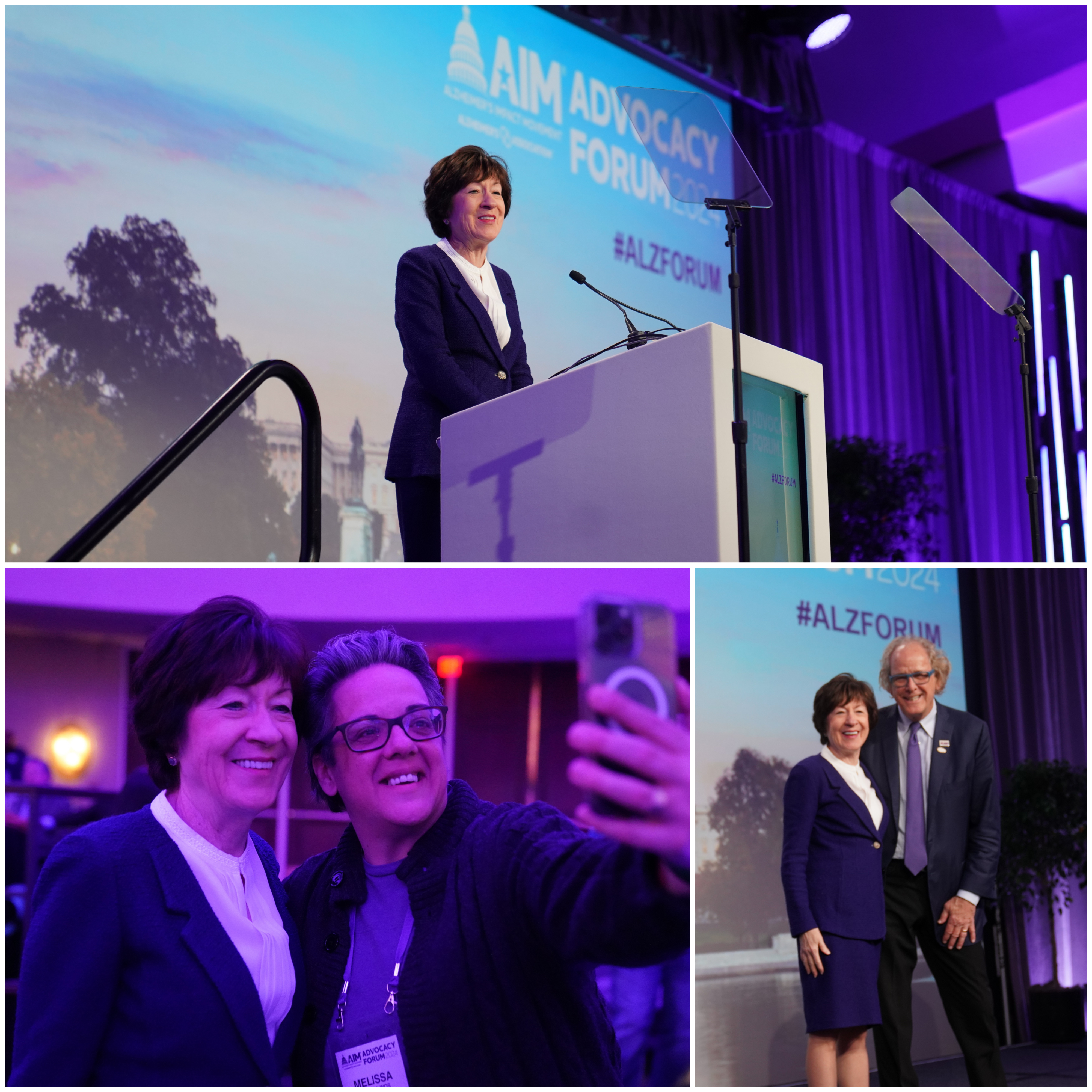Senator Collins Speaks at Alzheimer’s Impact Movement Advocacy Forum

Click HERE, HERE, or HERE for individual high-resolution photos
Washington, D.C. – U.S. Senator Susan Collins delivered remarks and discussed her legislative priorities at the annual Alzheimer’s Association’s Alzheimer’s Impact Movement (AIM) Advocacy Forum in Washington. More than 1,000 advocates from all 50 states were in attendance, including Mainers that advocate or care for people living with Alzheimer’s disease and other related dementia.
“When I first joined the Senate in 1997, there wasn't really much of a focus on Alzheimer's in Washington, and it was often called dementia or even senility, and was thought of as not a disease but just part of growing old,” said Senator Collins. “In partnership with tremendous advocacy groups like AIM, we have raised public awareness and put a federal focus on this disease. In my role as Vice Chair of the Appropriations Committee, and with the continued investment and ongoing advocacy of groups like AIM, we will stop Alzheimer’s from being one of the defining diseases of our children’s generation as it has been for ours.”
“Because of bipartisan congressional champions and our tireless Alzheimer’s Association advocates, we are building momentum in the fight against this devastating disease,” said Robert Egge, Alzheimer’s Association chief public policy officer and AIM president. “Thank you Sen. Susan Collins for joining us at the 2024 AIM Advocacy Forum. We are deeply grateful for your leadership and your longstanding commitment to the Alzheimer’s community.”
6.9 million Americans – including 29,000 Mainers – are currently living with Alzheimer’s. By 2050, barring any major breakthroughs to prevent, slow down, or cure Alzheimer’s, that number is expected to nearly double to 13 million. In addition to the human toll, Alzheimer’s is our nation’s most expensive disease, with annual costs protected to reach an astonishing $360 billion this year. If we continue along this trajectory, Alzheimer’s will surpass $1 trillion in annual costs by mid-century.
As the founder and co-chair of the Congressional Task Force on Alzheimer’s disease, Senator Collins has been a champion for all those affected by Alzheimer’s. In 2011, She was an author of the National Alzheimer’s Project Act (NAPA), which convened a panel of experts who created a coordinated strategic national plan to prevent and effectively treat Alzheimer’s disease. Last year, Senator Collins introduced two bipartisan bills to help maintain the momentum for funding Alzheimer’s research: the NAPA Reauthorization Act, which would modernize and extend NAPA through 2035, and the Alzheimer’s Accountability and Investment Act, which would continue a requirement that the Director of the National Institutes of Health submit an annual budget directly to Congress estimating the funding necessary to fully implement NAPA’s research goals.
This February, Senators Collins, Catherine Cortez Masto (D-NV), Shelley Moore Capito (R-WV), and Tim Kaine (D-VA) introduced the Building Our Largest Dementia (BOLD) Infrastructure for Alzheimer’s Reauthorization Act of 2024. This legislation would reauthorize funding for public health initiatives across the country to combat Alzheimer’s disease and preserve brain health. These initiatives began when the original BOLD Act, authored by this same bipartisan group of four senators, was signed into law in 2018.
Following the advocacy of Senator Collins, the Vice Chair of the Senate Appropriations Committee, funding for the National Institutes of Health increased by $300 million—including a $100 million increase for Alzheimer’s disease and related dementia research—in the Fiscal Year 2024 Labor, Health and Human Services, Education, and Related Agencies Appropriations bill.
The Alzheimer's Association is a leading non-profit organization in Alzheimer's care, support and research.
###